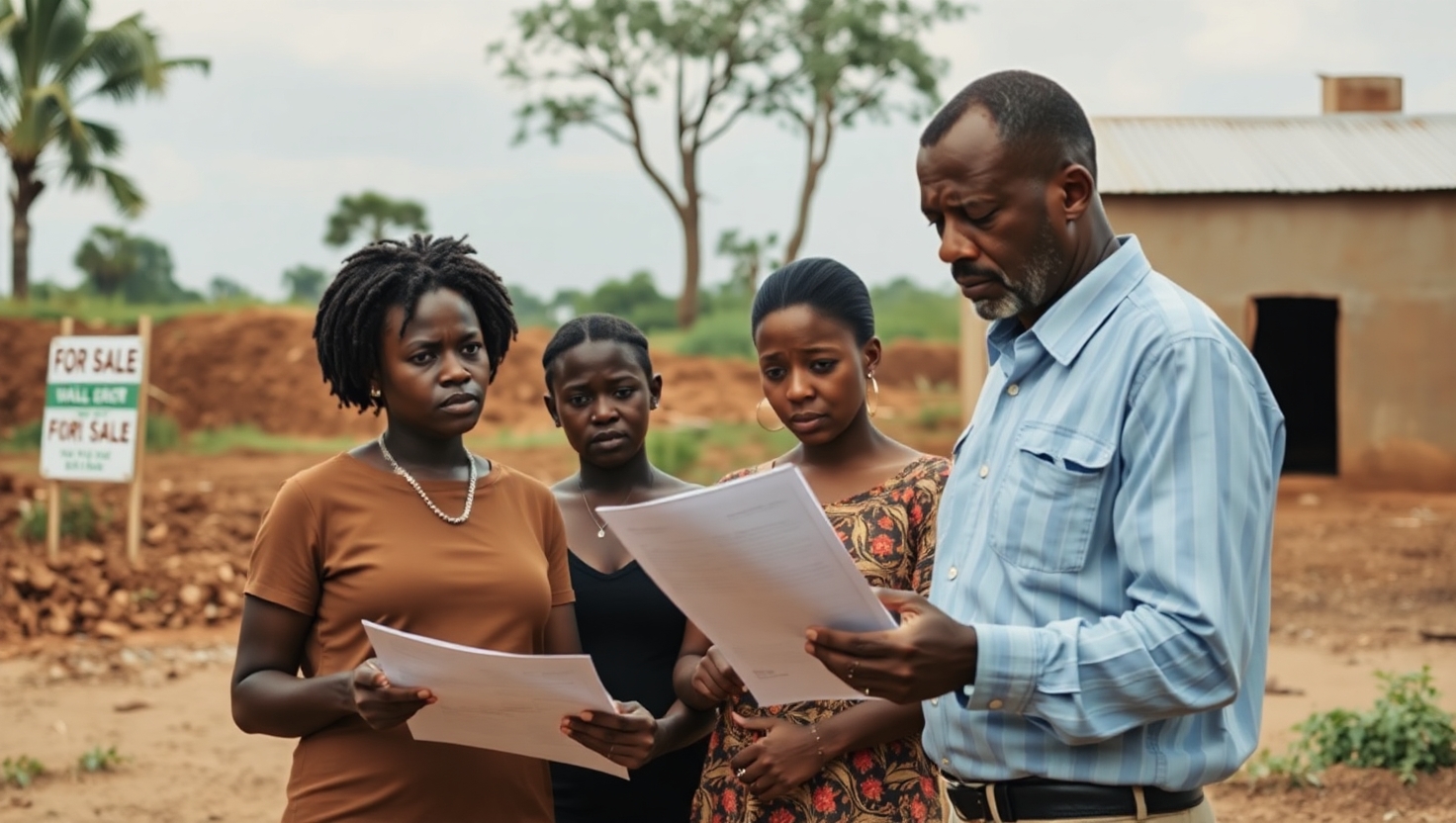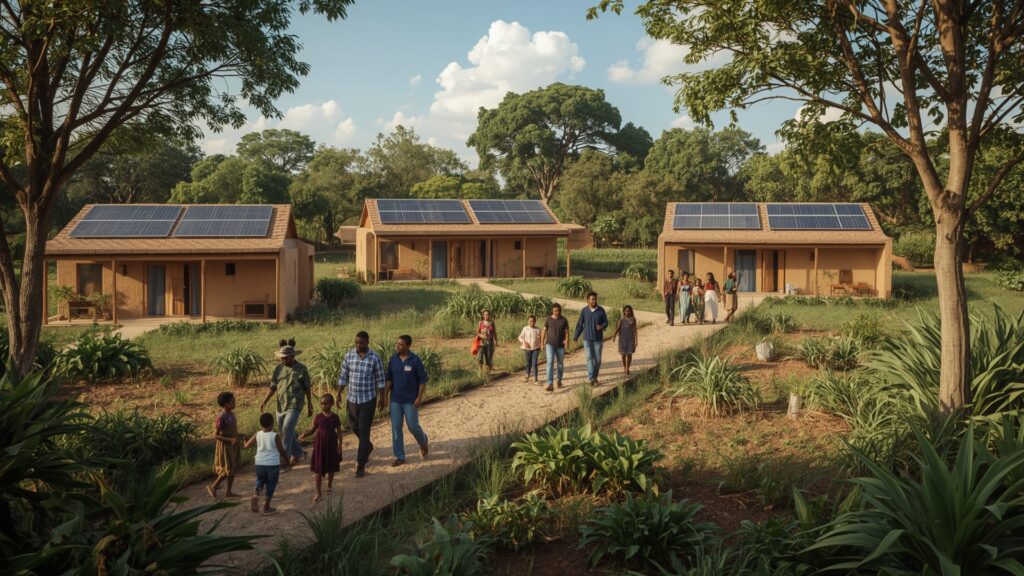Coming Home Shouldn’t Mean Losing Everything
For many of us in the diaspora, buying land in Africa is more than just a transaction. It’s spiritual. It’s a return. It’s reclaiming something we were told we lost.
But here’s the painful truth I’ve witnessed again and again:
Diaspora buyers are losing thousands—sometimes tens of thousands—because of avoidable mistakes.
Not because they’re foolish. But because they trusted the wrong people, skipped key steps, or thought they could figure it out alone.
In this post, I’ll show you the 7 most common mistakes diaspora buyers make—and share the deeply personal story of three sisters (including myself) who lost over €90,000 on land that never existed.
Let’s start with what not to do—so your return is built on legacy, not loss.
Mistake #1: Comparing Prices to the West
When you see a plot of land in Ghana, Nigeria, or Kenya listed at $20K… it’s easy to think:
“Wow, that’s cheap! That wouldn’t even buy a bathroom in New York.”
And that’s the trap.
Diaspora buyers often overpay—not because the land is worth it, but because we use Western logic in an African market.
Tip:
Price should be based on local market value, not your emotional excitement or what you’d pay in Europe. Always ask: What are locals paying in this exact area?
Mistake #2: Skipping Legal Verification
This is the most dangerous mistake of all.
Many people are shown land documents… but never verify them with the Lands Commission or planning office. Some rely on agents. Others trust family members.
But unless it’s verified in the official system, it’s just paper.
Tip:
Always conduct a title search and legal due diligence with a neutral, licensed lawyer. No matter who is selling it to you.
Mistake #3: Buying Without Visiting the Land
Buying land you haven’t seen with your own eyes is like marrying someone you’ve only seen on Instagram.
Photos lie. So do location pins.
Many diaspora buyers are shocked when they finally visit their “land” — and it’s in a swamp, on someone else’s property, or not accessible by road.
Tip:
Visit personally—or send a trusted, independent inspector. Walk the boundaries. Talk to the locals. Verify everything.
Mistake #4: Avoiding Expert Help to “Save Money”
This is the one that hurts the most.
Too many diaspora buyers skip hiring a lawyer, surveyor, or relocation expert because they don’t want to pay $300, $500, or $1,000.
Instead, they lose $10,000–$50,000+ in bad land deals.
OUR STORY: How My Sisters and I Lost €90,000 Trying to Do It Ourselves
In 2021, my sisters and I bought land in Prampram, Ghana.
We were excited. Hopeful. Determined to build something for our families. We paid €30,000 per plot, thinking we were getting a prime deal in a rising area.
We didn’t visit.
We didn’t verify the title.
We didn’t hire a lawyer.
We trusted the process… because the person we worked with was “known,” friendly, and spoke our language.
Three years later, we had nothing.
No documents.
No land.
No refund.
And worse? We learned that land in the area was now selling for less than €7,000 per plot.
“It’s okay to pay someone to help you. But to be taken advantage of like this? It’s not just money we lost. It was trust, time, and belief.”
That experience is why I started Return 2 Rebuild. So no one else would have to learn the hard way.
Mistake #5: Ignoring Zoning & Land Use
Just because a plot looks great doesn’t mean you can build on it.
It could be agricultural land, reserved for government use, or prone to flooding.
Tip:
Always check with the Town & Country Planning Office or equivalent to verify zoning, environmental status, and development plans.
Mistake #6: Trusting Verbal Agreements
No matter how much someone says, “Don’t worry—I’ll take care of it,” if you don’t have a legal agreement, you don’t own the land.
Verbal promises and handshakes don’t hold up in court.
Tip:
Always get:
- A signed sale agreement
- An official site plan
- A receipt with location coordinates
- An indenture or title filed at Lands Commission
Mistake #7: Not Thinking Long-Term
Too many diaspora buyers jump on cheap land without thinking about:
- Access roads
- Schools
- Clinics
- Electricity and water
- Future value
Tip:
Ask yourself: Can I live here? Will this area grow? What’s the 5–10 year plan for this location?
Final Thought: You’re Not Just Buying Land. You’re Buying Legacy.
That’s why you need protection. Structure. Support.
At Return 2 Rebuild, we:
- Vet every land offer
- Conduct title and court checks
- Offer verified, litigation-free plots
- Walk you through the full process — legally, practically, emotionally
You can buy land safely, without losing your savings or your sanity.
Ready to Buy Land — the Right Way?
Book a Free Land Clarity Call
We’ll show you how to avoid scams, secure verified plots, and build your legacy with confidence.




